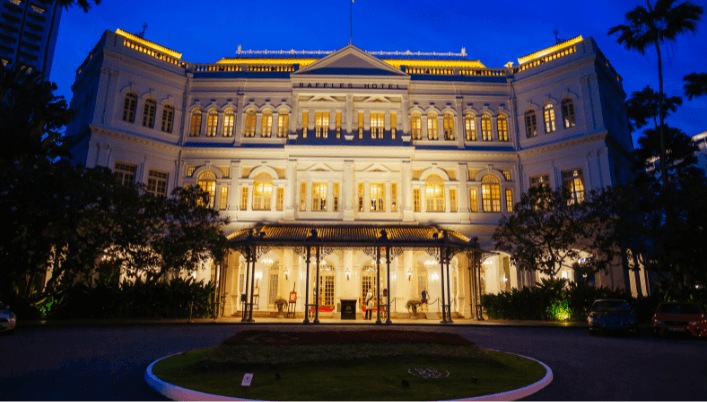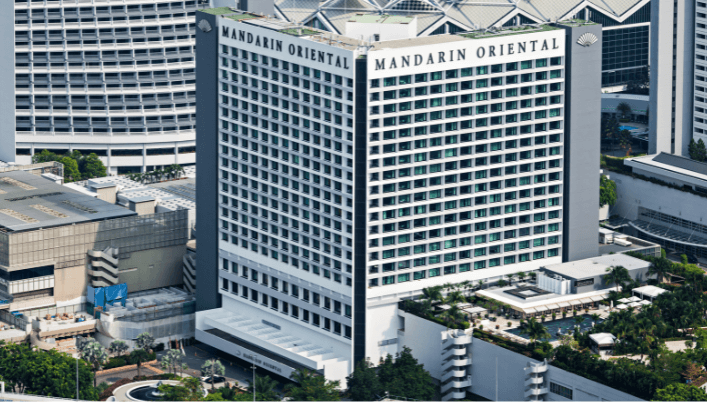
Hotels are a common type of accommodation for guests who are traveling for business or pleasure.
They provide a comfortable space for travelers to rest and relax during their stay, and there are various types of hotels available, each catering to different needs and preferences.
In this article, we will provide an in-depth overview of hotel classifications, explore the different types of hotels in the hospitality industry, and analyze the diverse classifications of commercial hotels.
Key Takeaways
- Hotel Classification Definition: Hotel classification involves categorizing hotels based on amenities, services, and quality to help guests understand what to expect and assist hoteliers in marketing.
- Criteria for Classification: Hotels are classified based on factors like room count, facilities, service quality, and guest experience. Criteria may vary by country and are set by government bodies or industry associations.
- Levels of Classification: Hotels have various levels, from budget to luxury, represented by one to five-star ratings. Each level offers different service and facilities, with five-star hotels being the most luxurious.
- Diverse Hotel Types: The hospitality industry offers various hotel types, including resorts, boutiques, motels, bed and breakfasts, and business hotels, each catering to different traveler preferences.
- Boutique Hotel Characteristics: Boutique hotels have an intimate, stylish atmosphere with fewer rooms, personalized service, and a strong focus on design and guest experience.
- Resort Hotel Pros and Cons: Resort hotels provide comprehensive vacation experiences with recreational facilities, but they can be pricier compared to other accommodations.
- Commercial Hotel Classifications: Commercial hotels vary by target market, price range, and luxury level. Examples include luxury, budget, business, and residential hotels.
- Luxury vs. Budget Hotels: Luxury hotels offer high-end amenities and services, while budget hotels are affordable with basic amenities for budget-conscious travelers.
- Size and Location Variation: Commercial hotels come in different sizes and locations, such as city centers, beachfront, or countryside areas, based on their target market and setting.
- Boutique Hotel Uniqueness: Boutique hotels stand out with unique themes, styles, and personalized service. They emphasize creating distinctive and immersive guest experiences.
- Chain vs. Independent Hotels: Chain hotels follow standardized models for design and service across a brand, while independent hotels offer more flexibility and unique experiences.
- Advantages of Chain Hotels: Chain hotels offer a wider network, consistent service, and loyalty programs, providing perks and benefits for frequent guests.
- Accommodation Types: Commercial hotels offer a variety of accommodations, including standard rooms, suites, and specialty rooms, catering to different guest preferences.
- Hotel Management Variation: Hotel management practices differ among commercial hotels, with luxury hotels having more extensive structures and budget hotels focusing on efficiency.
- Choosing a Hotel Considerations: When selecting a commercial hotel, factors like location, amenities, reputation, and value for money should be taken into account for a comfortable stay.
Understanding Hotel Classification: An In-Depth Overview

What is hotel classification and why is it important?
Hotel classification refers to the process of categorizing hotels based on their amenities, services, and overall quality.
It is important because it helps guests have a better understanding of what to expect when staying at a particular hotel.
It also assists hoteliers in marketing their properties effectively.
How are hotels classified based on their amenities and services?
Hotels are classified based on a set of criteria that typically include factors such as the number of rooms, available facilities, service quality, and overall guest experience.
These criteria may vary from country to country and are usually determined by government bodies or industry associations.
What are the different levels of hotel classifications?
Hotels can be classified into various levels, ranging from budget hotels to luxury establishments.
The most common classifications include one-star, two-star, three-star, four-star, and five-star ratings.
Each level represents a different standard of service and facilities, with five-star hotels being the most luxurious and offering the highest level of comfort.
Types of Hotels in the Hospitality Industry: A Complete Analysis

What are the main types of hotels in the industry?
The hospitality industry is vast and diverse, offering a wide range of hotel types to cater to different traveler preferences.
Some of the main types of hotels include resort hotels, boutique hotels, motel, bed and breakfast, and business hotels.
Each type has its own unique features and target market.
What are the characteristics and features of boutique hotels?
Boutique hotels are known for their intimate and stylish ambiance.
They are usually smaller in size, often with less than 100 rooms, and offer personalized service to their guests.
These hotels often have a strong focus on design, decor, and creating a unique guest experience.
What are the advantages and disadvantages of staying in a resort hotel?
Resort hotels are ideal for travelers looking for a complete vacation experience.
They often offer a wide range of recreational facilities such as swimming pools, spa services, golf courses, and organized activities.
While resort hotels provide a luxurious and relaxing atmosphere, they can sometimes be more expensive compared to other types of accommodations.
Diverse Classifications of Commercial Hotels: From Luxury to Budget

What are the different classifications of commercial hotels?
Commercial hotels can be classified into various categories based on their target market, price range, and overall level of luxury.
Some common classifications include luxury hotels, budget hotels, business hotels, and residential hotels.
What distinguishes a luxury hotel from a budget hotel?
Luxury hotels are known for their high-end amenities, exclusive services, and luxurious accommodations.
They often have extensive facilities such as fine dining restaurants, spa and wellness centers, and concierge services.
On the other hand, budget hotels are more affordable and typically offer basic amenities suitable for travelers on a tight budget.
Can commercial hotels vary in terms of size and location?
Absolutely! Commercial hotels can vary in size and location depending on their target market and the location in which they are situated.
Some commercial hotels are large properties with hundreds of rooms, while others are smaller boutique establishments.
They can be located in various settings, such as city centers, beachfront locations, or in picturesque countryside areas.
Exploring Hotel Types: From Boutique to Chain Hotels
What makes a boutique hotel unique?
Boutique hotels are unique because of their emphasis on creating a distinctive and immersive guest experience.
They often have a specific theme, style, or concept that sets them apart from traditional chain hotels.
Boutique hotels also tend to have a more personalized and intimate atmosphere, with attention to detail and individualized service.
How do chain hotels differ from independent ones?
Chain hotels are part of a larger hotel group or brand and often follow a standardized model in terms of design, amenities, and service.
They are known for their consistency, reliability, and loyalty programs for frequent travelers.
Independent hotels, on the other hand, have more flexibility in terms of their offerings and can provide a unique, one-of-a-kind experience.
Are there specific advantages to staying in a chain hotel?
Staying in a chain hotel can have several advantages.
They usually have a wider network of properties, making it easier to find accommodations in different locations.
Chain hotels also tend to have established standards of service, ensuring a certain level of quality and consistency.
Additionally, loyalty programs offered by chain hotels can provide various perks and benefits to frequent guests.
Hotel Industry Insights: An In-depth Look at Commercial Hotel Varieties
What are the popular types of accommodation in commercial hotels?
Commercial hotels typically offer a variety of accommodation types to cater to different guest needs.
These can include standard rooms, suites, and sometimes even specialty rooms such as themed rooms or luxury penthouses.
The availability of different accommodation options allows guests to choose the type of room that suits their preferences and budget.
How does hotel management differ across various types of commercial hotels?
Hotel management practices can vary across different types of commercial hotels.
Luxury hotels often have a more extensive management structure with specialized departments and a focus on providing exceptional service.
Budget hotels, on the other hand, may have a leaner management structure with a focus on efficiency and cost control.
What are the key considerations when choosing a commercial hotel?
When choosing a commercial hotel, there are several key considerations to keep in mind.
These include the location of the hotel, the amenities and services offered, the reputation and reviews of the hotel, and the overall value for money.
It’s important to consider your specific needs and preferences to ensure a pleasant and comfortable stay.
Hotel Management and Classification: A Deep Dive into Accommodation Types
Understanding Different Types of Hotels
When it comes to hotel classification, there are several factors to consider.
The location, amenities, and target audience all play a role in determining the type of hotel.
Some of the common types include beach hotels, airport hotels, hill station hotels, and casino hotels.
Exploring Hotel Classification
Hotels can be classified based on their levels of service and the types of guests they cater to.
For example, transient hotels provide overnight accommodation for travelers passing through, while extended stay hotels offer lodging for guests who require a longer period of stay.
Convention hotels and suite hotels are popular choices for business travelers, as they provide business services and amenities.
Differentiation Between Motels and Resorts
It’s important to note the difference between motels and resorts, as they are often used interchangeably.
Motels typically cater to travelers on the road, such as airline passengers or those passing through business districts.
They offer basic amenities and are commonly found near highways.
Resorts, on the other hand, are larger establishments with a focus on recreational activities and leisure facilities.
Commercial Hotel Rooms: A Closer Look at Design and Amenities
Key Design Considerations for Commercial Hotel Rooms
The design of commercial hotel rooms is crucial in creating a welcoming and comfortable space for guests.
Factors such as lighting, furniture placement, and color scheme all contribute to the overall ambiance.
It’s essential to create a relaxing atmosphere that promotes a good night’s sleep for guests.
Amenities That Enhance the Guest Experience
Modern commercial hotel rooms are equipped with various amenities to enhance the guest experience.
These amenities may include a fitness center, business center, and recreational activities such as tennis courts or a swimming pool.
It’s important for hotels to offer these facilities to cater to the needs and preferences of their guests.
Maximizing Space in Commercial Hotel Rooms
In commercial hotel rooms, space optimization is crucial.
Hotel designers aim to make the most of every square footage available, providing guests with a comfortable and functional room.
This includes utilizing smart storage solutions, such as built-in closets and shelving units, to keep the room organized and clutter-free.
Maximizing Guest Experience: How Hotel Management Impacts Commercial Hotels

The Role of Hotel Management in Ensuring Guest Satisfaction
Hotel management plays a crucial role in ensuring guest satisfaction.
By overseeing the daily operations of the hotel, management ensures that guests receive excellent service and have a positive experience.
This includes training staff to provide exceptional customer service and addressing any concerns or issues raised by guests.
Strategies for Providing Exceptional Customer Service
To provide exceptional customer service, hotels must prioritize staff training and development.
This includes teaching employees effective communication skills, attention to detail, and the ability to anticipate guests’ needs.
Additionally, implementing feedback loops and regularly seeking input from guests can help identify areas for improvement and ensure that their needs are met.
Creating Memorable Guest Experiences
Commercial hotels aim to create memorable experiences for their guests, whether it be through personalized service, unique amenities, or special events and activities.
By going above and beyond to exceed guest expectations, hotels can leave a lasting impression on their guests, resulting in positive reviews and repeat business.
On-Page SEO Strategies for Commercial Hotels: Optimizing Meta Tags and Content
Understanding the Importance of On-Page SEO for Hotels
In today’s digital age, having a strong online presence is essential for hotels.
On-page SEO refers to the optimization of website content and meta tags to improve search engine visibility.
By implementing effective on-page SEO strategies, hotels can attract more organic traffic to their website and increase bookings.
Optimizing Meta Tags for Better Search Engine Visibility
Meta tags are HTML elements that provide information about the content of a web page to search engines.
By optimizing meta tags such as title tags and meta descriptions with relevant keywords and compelling information, hotels can improve their search engine rankings and increase click-through rates from search engine results pages.
Creating SEO-Friendly Content for Hotel Websites
Creating SEO-friendly content involves incorporating relevant keywords and providing valuable information to users.
Hotels can optimize their website content by creating informative blog posts, destination guides, and local attractions pages.
This not only helps improve search engine rankings but also provides useful information to potential guests.
Off-Page SEO Techniques for Commercial Hotels: Building Quality Backlinks

The Role of Off-Page SEO in Hotel Marketing
Off-page SEO refers to activities that are done outside of the hotel’s website to improve its online visibility.
One of the most important off-page SEO techniques is building quality backlinks.
Backlinks act as votes of confidence from other websites, signaling to search engines that the hotel’s website is trustworthy and authoritative.
Building Quality Backlinks to Improve Search Engine Rankings
There are several strategies hotels can use to build quality backlinks.
This includes reaching out to relevant websites and influencers in the travel industry for collaborations or guest blogging opportunities.
It’s essential to focus on building natural and high-quality backlinks, as search engines prioritize quality over quantity.
Influencer Partnerships for Increased Online Visibility
Influencer partnerships can also contribute to a hotel’s off-page SEO efforts.
Collaborating with influential bloggers, social media personalities, or travel influencers can help increase online visibility and attract a wider audience.
By leveraging the reach and influence of these individuals, hotels can gain exposure to potential guests who may be interested in their offerings.
Enhancing Social Media Presence for Commercial Hotels: Strategies for Growth
In today’s digital age, having a strong presence on social media is crucial for commercial hotels to attract and engage with their target audience.
With the rise of online booking platforms and increasing competition, hotels need to implement effective strategies to enhance their social media presence and drive growth.
This article will explore various strategies that commercial hotels can adopt to optimize their social media presence and attract more guests.
Geo-Relevance and Online Sales: Mastering Local, Mobile, and E-commerce SEO

One of the key strategies for enhancing social media presence is to optimize the hotel’s website for local SEO.
This involves targeting local keywords that are relevant to the hotel’s location and business clientele.
By incorporating these keywords into the website content, such as hotel descriptions and blog posts, the hotel can improve its visibility on search engine results pages.
In addition to local SEO, commercial hotels should also focus on implementing mobile-friendly design and functionality.
With the increasing number of travelers using their smartphones to research and book hotels, it is essential for hotels to have a responsive website that provides a seamless user experience across different devices.
This includes having a mobile-friendly layout, fast loading times, and easy navigation.
Furthermore, hotels should create effective e-commerce strategies for hotel bookings.
By integrating online booking platforms and implementing user-friendly booking processes, hotels can streamline the booking experience for their guests.
This not only enhances convenience for travelers but also increases the hotel’s online sales.
Leveraging Google Analytics for Commercial Hotels: Insights and Analysis
Another valuable strategy for commercial hotels is to leverage the power of Google Analytics.
By setting up Google Analytics for their websites, hotels can track and analyze various metrics related to website traffic and user behavior.
This includes the number of visitors, their demographics, the pages they visit, and the time they spend on the website.
Utilizing this data, hotels can gain valuable insights into their target audience and their preferences.
For example, if the majority of website visitors are business travelers, the hotel can tailor its marketing messages and offerings to cater to this particular segment.
Additionally, by analyzing the booking patterns and conversion rates, hotels can identify areas for improvement and make data-driven marketing decisions.
Conducting Comprehensive SEO Audits for Commercial Hotels: A Step-by-Step Guide

To ensure optimal visibility on search engines, commercial hotels should regularly conduct comprehensive SEO audits.
This involves performing keyword research specific to the hotel industry and analyzing various on-page and off-page SEO factors.
During the keyword research phase, hotels should identify relevant keywords that have high search volumes and low competition.
By incorporating these keywords into their website content and meta tags, hotels can increase their chances of ranking higher in search engine results.
Furthermore, hotels should analyze on-page factors such as website structure, page load speed, and URL structure.
These factors impact the overall user experience and search engine rankings.
Off-page factors like backlinks and social media mentions should also be considered to assess the hotel’s online reputation and authority.
Empowering Hotel Clients: Providing Tools and Knowledge for SEO Success
In addition to implementing SEO strategies, commercial hotels should empower their clients by providing them with the necessary tools and knowledge for SEO success.
By educating hotel clients on the importance of SEO and its impact on their online presence, hotels can foster a collaborative approach towards optimizing their social media presence.
Hotels can offer various SEO tools and resources for self-evaluation.
This can include keyword research tools, website auditing tools, and educational materials such as blog posts and tutorials.
By equipping their clients with these resources, hotels can empower them to actively participate in the optimization process.
Moreover, hotels should provide ongoing support and guidance to their clients to ensure SEO success.
This can be in the form of regular consultations, performance reviews, and recommendations for improvement.
By maintaining a close relationship with their clients, hotels can enhance their social media presence and drive growth together.
In conclusion, enhancing social media presence is essential for commercial hotels to attract and engage with their target audience.
By implementing strategies such as geo-relevance optimization, leveraging Google Analytics, conducting comprehensive SEO audits, and empowering hotel clients, hotels can optimize their social media presence and drive growth.
With the increasing importance of social media in the travel industry, commercial hotels should prioritize their online presence to stay ahead of the competition and attract more guests.
Conclusion
Are you ready to embark on a journey that unlocks the hidden potential of your hotel’s online presence? Step into a world where keywords hold the key to discovery, where content bursts with creativity, and where every click leads to unforgettable experiences.
Welcome to the realm of the SEO Sage – your guide to mastering the art of search engine optimization and social media prowess.
Picture this: your hotel, a beacon of luxury and comfort, standing tall amidst the digital landscape.
With the guidance of the SEO Sage, you’ll explore the intricate web of keywords, unearthing new opportunities and evaluating the potential of each.
Craft content that dances with burstiness and perplexity, capturing the essence of your brand in every word.
But that’s just the beginning.
Dive deep into the realm of on-page SEO, where meta tags, keyword placement, and HTML enhancements orchestrate a symphony of visibility.
Venture beyond your virtual borders, mastering off-page SEO to build a network of high-quality backlinks that amplify your authority.
Engage influencers, embrace social bookmarking, and witness the ripple effect of your digital footprint.
Yet, the saga doesn’t end there.
Your journey takes a local twist as you optimize for geo relevance, mobile convenience, and the enchanting world of e-commerce.
Become a Google Analytics virtuoso, decoding data to unveil the secrets of user behavior and insights that fuel your growth.
But what’s the grand finale? Uncover the true potential of your hotel through comprehensive SEO audits that unveil strengths, weaknesses, and a roadmap to long-term success.
Empower your clients with knowledge and tools, transforming them into partners in the journey to digital triumph.
So, are you ready to redefine your hotel’s online narrative? Let the SEO Sage be your beacon, guiding you through a landscape where innovation meets strategy, where creativity merges with data, and where your hotel’s story becomes an irresistible allure.
Embark on this adventure, and let your hotel’s digital presence shine brighter than ever before.
Frequently Asked Questions
What is the classification of hotels?
Hotels can be categorized based on different factors such as their size, amenities, and target market.
What are the different types of hotels?
There are many different types of hotels, including economy hotels, medium hotels, apartment hotels, conference hotels, heritage hotels, bed and breakfast hotels, and downtown hotels.
How are hotels generally classified?
Hotels are usually classified by their star ratings, which indicate the level of luxury and facilities offered.
What are the main categories of hotels?
The main categories of hotels include economy hotels, midscale hotels, upscale hotels, and luxury hotels.
These categories determine the level of service and amenities provided.
What are some features of a large hotel?
A large hotel typically has a wide range of guests, multiple restaurants and bars, conference centers, fitness centers, laundry facilities, and meeting spaces.
What is an apartment hotel?
An apartment hotel is a type of accommodation that offers fully furnished apartments with hotel-like services, such as housekeeping and guest services.
How are hotels with gambling facilities classified?
Hotels with gambling facilities are often classified as casino hotels or resorts.
They have casinos within the property where guests can gamble.
What are the bathroom facilities in hotels?
Hotels usually have private bathrooms in each guest room.
The facilities can vary from basic amenities to luxurious fixtures.
What are the meeting facilities in hotels?
Many hotels have dedicated meeting spaces or conference centers for events and business meetings.
These spaces are equipped with audio-visual equipment and can accommodate different group sizes.
What are some common guest services provided by hotels?
Common guest services provided by hotels include concierge services, room service, laundry facilities, and assistance with booking tours and transportation.












